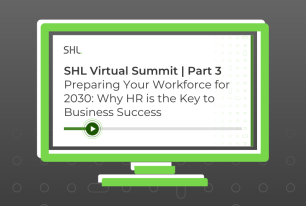What You Need to Know about Graduate Recruitment in 2022
The pandemic has forced organizations to shift their graduate recruitment strategy. Learn what you can do to reinforce your hiring efforts.
Share
It is no surprise the pandemic has greatly affected the world of work. The transformation has been expedited across many organizations globally: remote and hybrid working are there to stay, and existing roles and the skills required to be successful are also likely to have changed. The recent challenges also transformed talent acquisition, especially graduate recruitment. It made organizations rethink how they attract, recruit, and develop individuals, with a varying degree of success.
It is not just organizations that were affected—recent graduate cohorts have had a different experience during their studies than those before them. They have missed out on valuable experiences at university and lacked internship opportunities within organizations as these have been significantly down in recent years. Organizations cannot expect the same set of skills from this cohort as from previous graduates and should not be hiring based on the same criteria as before as roles and our way of working have dramatically changed.
Recruiting graduates in 2022
While the number of individuals graduating each year is at a record high, there is an increasing number who choose to stay on in education—allowing the job market to settle post-pandemic—before they attempt to enter the world of work. However, with 2020 and 2021 graduate cohorts still looking for vacancies, most organizations are likely to see a high number of applications for their graduate vacancies (91 applications per graduate role, highest on record – ISE 2022 Report).
2022 is the year of change. The number of graduate roles will return to, and likely rise above, pre-pandemic levels. Organizations need to be prepared for even higher application numbers and a cohort with a different set of skills and requirements. Evolved roles mean organizations are under pressure to select the most suitable candidates efficiently and accurately from a wider group of talent, based on new criteria.
The recent challenges made organizations rethink how they attract, recruit, and develop individuals, with a varying degree of success.
What you need to focus on in your graduate recruitment process
Despite the setbacks caused by the pandemic, the graduates of 2020-2022 are proven to be resilient. They offer many great qualities that any organization can certainly benefit from—they are tech-savvy, ready to prove themselves, and determined to create a more sympathetic society. And recruiting graduates in 2022 onwards will require different measures than before as the world of work and roles also evolve. Not only do you need to make your organization stand out in the eyes of the candidates, but you must also ensure that your process is robust for years to come.
Using a smart recruiting technology that is powered with AI, based on years of scientific research and validation, for example, will help improve your hiring efficiency and accuracy and reduce biases. SHL’s Graduate Solution, for example, will give you in-depth and data-driven insights on the candidates. This solution is also easily scalable and configured, which will be tremendously helpful in screening a large volume of candidates as the number of graduate applicants continue to rise, even in the post-pandemic time.
Apart from technology, there are many other factors that can contribute to a successful graduate recruitment process. And with all the challenges that have forced organizations to shift their mindsets and opportunities that lie ahead, what else can you do to ensure your hiring strategy sustainable?
Download our "How to Guide" for our practical advice on how to succeed with your graduate recruitment in 2022!









